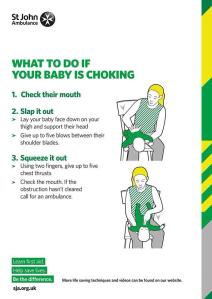So, I was just sat scrolling down my Facebook, procrastinating when really I should be focusing on my fast approaching deadlines, when a something caught my eye and made me think.
It was an e-petition for the ‘Green Party to be included in the BBC political debate’. So after kind of being won around by the Greens lately, mainly due to the fact they see the importance of investing in young people, youth services and communities, I thought yes I am defo going to sign then.
The great thing is, nowadays you can actually now have an impact without even having to leave your sofa. With an option of sharing the petition yourself through the use of other social media platforms, i.e. Facebook and Twitter, you are doing more than just signing the petition but adding to the spread of it. As mentioned in a previous post the author Clay Shirky, mentioned that through doing this, I will have added to the complexity, through creating more connections and more networks, that will hopefully spread the word further.
An article written by the Guardian, states,
….the BBC “will continue to keep any new evidence of increased support for the Green party under close review” – Guardian:Online:2014
I’m just hoping that the BBC are taking notice of this activity and are aware of the online support that the Green Party are receiving, currently 13,560 people have signed this out of the 15,000 signatures they are asking for, we can do this!
This led me to question, I wonder how effective these online petitions actually are, and if any had actually made any impacts…
An article by The Independent (2012) which stated that signing e-petitions has become one of Britain’s favorite forms of political participation. The author then goes on to discuss why he thinks internet petitions especially of this form have become so popular,
It is that internet-driven norms of networking, flexibility, spontaneity and ad hoc organizing have started to diffuse into our political culture and these norms are generating new expectations about what counts as effective and worthwhile political action. These new online norms also increasingly mesh with changing practices in the world of older media, particularly television.
And I completely see his point, but also I think that not just in terms of political e-petitions but just online petitions in general, over the past few years nearly everyone has access to the internet, and most people will access the web daily; that coupled with the ease of accessing these petitions, and sharing them so easily will both have added to the increase, because lets face it, the internet isn’t really making it effort for us to do this.
But after further researching, I found that for a e-petition to be considered for debate by the Commons, it has to reach 100,000 signatures and petitions that reach 10,000 signatures would elicit a written response from the government (BBC: Online: 2013). They also go on to state that not many petitions actually reach the 100,000 signatures needed with many becoming, what they describe as, ‘digital dust’.
I was shocked when I read this because to me this isn’t as many signatures that I thought, and to me, 100,000 is doable, especially when the cause is something that affect us all, such as political petitions. Millions of people access the web daily, so I wonder what is preventing them from reaching these targets? Maybe they need to promote themselves in other ways?
Although some may not be reaching there targets, digital petitions are on the rise. This shows me that there has been a cultural change within society, maybe even an evolution….the shift in things being done manually to digital, e.g. people going to a town hall to sign a petition vs e-petitions.
I wonder what effect this is going to have, if any? I wonder if it’s representative of the population as a whole’s views, or, if it is the views of the young, tech, savvy generation that regularly use the internet and are aware of these online petitions?
Who knows? I’ve sat and rambled on for long enough now, so I’m gonna wrap this up now with some references and then go and enjoy a large glass of wine…if it Saturday night after all!!!
BBC, 2013. First Day ‘is Crucial For The Success of E-petitions. [Online] Available at: http://www.bbc.co.uk/news/uk-politics-23441223
The Guardian, 2014. BBC Refuses To Include Green Party Televised Leader Debates. [Online] Available at: http://www.theguardian.com/politics/2014/oct/29/bbc-refuses-include-green-party-televised-leader-debates-general-election
The Independent, 2012. How Digital Petitions Are Replacing Traditional Parties As The Engine Of Modern, Popular Democracy. [Online] Available at: http://www.independent.co.uk/voices/comment/how-digital-petitions-are-replacing-traditional-parties-as-the-engine-of-modern-popular-democracy-8329266.html







Recent Comments